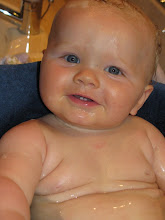Elements of Plot Necessary for Tragic Action from Aristotle's Poetics:
"Tristan's Revenge," A Scene from Legends of the Fall Analyzed Using Classical Criticism
“Chance occurrences seem most remarkable when they have the appearance of having been brought about by design” (Poetics 70). Aristotle in his treatise on tragedy, Poetics, sets forth the elements of tragedy most critical in arousing emotions of pity and fear. These elements including portentous or ironic chance occurrence, reversal, recognition, and suffering are critical in maximizing the tragic action of this YouTube clip. The scene begins with two brothers, Sam and Tristan, searching for each other amidst the chaos of a battlefield. When the brothers hear each other's calls there is a moment of elation, joy at the impending reunion, but as Sam stumbles blindly towards Tristan's voice he becomes entangled in barbed wire. Tristan arrives just in time to watch as his brother's body is riddled with bullets by enemy soldiers. Tristan frees his dying brother from the wire so that he may expire in his arms. This heart-wrenching scene is so powerful because it maximizes the “catharsis” of pity and fear in its audience. The plot is manipulated in such a way that each element of tragic action is interwoven with another; the tension steadily increases until the climactic ending is reached. “Incidents that awaken fear and pity...are heightened when things happen unexpectedly but because of each other” (70).
This same scene is also representative of reversal and recognition. “A recognition is a change from ignorance to knowledge...the most effective form of discovery is that which is accompanied by a reversal” (71). The details of the reversal and recognition in this clip are more realistic in nature and not as literal as the examples that Aristotle gives. However they still function as pivots in the plot employed to arouse pity and fear. “A reversal is a change from one state of affairs to its opposite” (70). For example, Sam is running towards his believed salvation when he is killed. This reversal operates simultaneously with the recognition moment of the scene. As Aristotle surmised, recognition and reversal are most powerful when they occur in combination. Watching his brother die, Tristan realizes that he has failed in his role protector. Rather than an episode of recognition between two distinct characters, this is a moment of self-recognition. The element of recognition is extended even further as Tristan recognizes the destructive, ugly nature of war and projects his anger and hatred onto the enemy soldiers. This projection which spurns Tristan's blood-thirsty revenge together with Tristan's own moment of self-recognition both fall somewhere within the third and fourth categories of recognition that Aristotle describes: recognition due to memory and recognition due to reasoning (78). Again the recognition in this scene is not as straightforward as the examples offered in Poetics. Nonetheless I still believe it to be a form of recognition as the character is arriving at understanding; he is moving from a naive, innocent perspective to a hardened, knowledgeable one. The audience is drawn into the character's pain during these moments of reversal and recognition. The portentous chance occurrence catches the audience off-guard so that they become caught up in the action. They then follow the scene in real-time, experiencing the reversal and recognition along with Tristan; this primes the audience for the suffering that follows.
Suffering, along with reversal and recognition, comprise Aristotle’s three elements of tragic plot. Aristotle defines suffering as: “an action of a destructive or painful nature, such as deaths openly represented, physical agonies, woundings, and the like” (71). Sam's “openly represented death,” witnessed by his brother ideally embodies the plot element of suffering as it is described by Aristotle.
To summarize this scene has the requisites of tragedy that Aristotle outlines in Poetics. The plot reveals a change in fortune that moves “from prosperity to misery...due, not to depravity, but to some great error” in a man “just like ourselves” (73). Furthermore, it is ordered in such a way that “even without seeing it performed, anyone merely hearing about the incidents will shudder with fear and pity as a result of what is happening” (74).
Works Cited
Aristotle. “Poetics.” Classical Literary Criticism. Trans. T.S. Dorsch and Penelope Murray. London: Penguin Books, 2004. 57-97.“Tristan’s Revenge.”


No comments:
Post a Comment